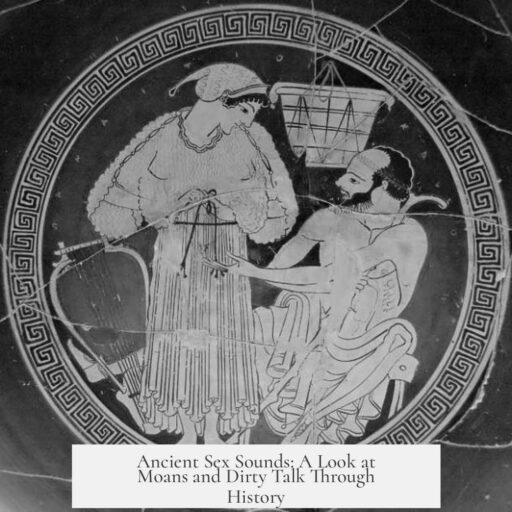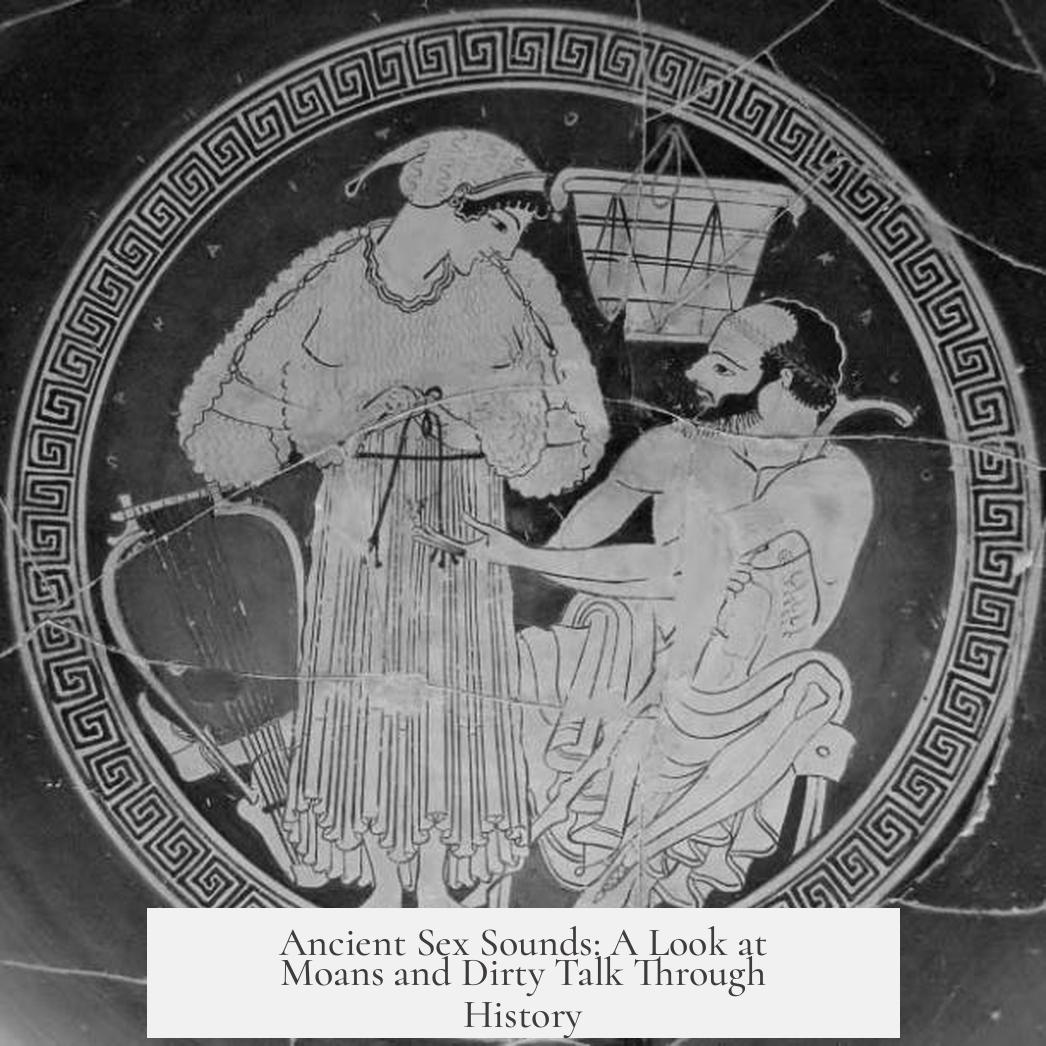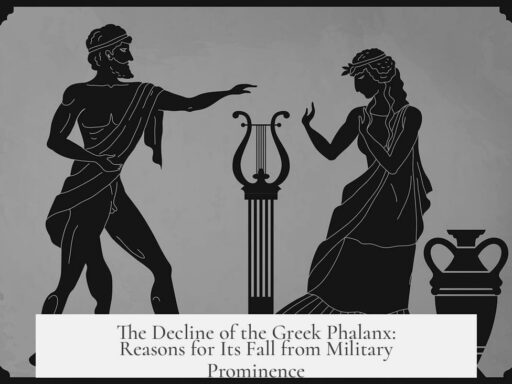Historical records reveal that sexual vocalizations such as moans, sighs, and dirty talk have existed in various forms since ancient times. Evidence from ancient Rome through early modern European erotic literature shows that partners expressed pleasure vocally, using languages, onomatopoeic sounds, and explicit dialogue to heighten intimacy. These traces offer insight into how people communicated passion and pleasure before modern media documented such behaviors.
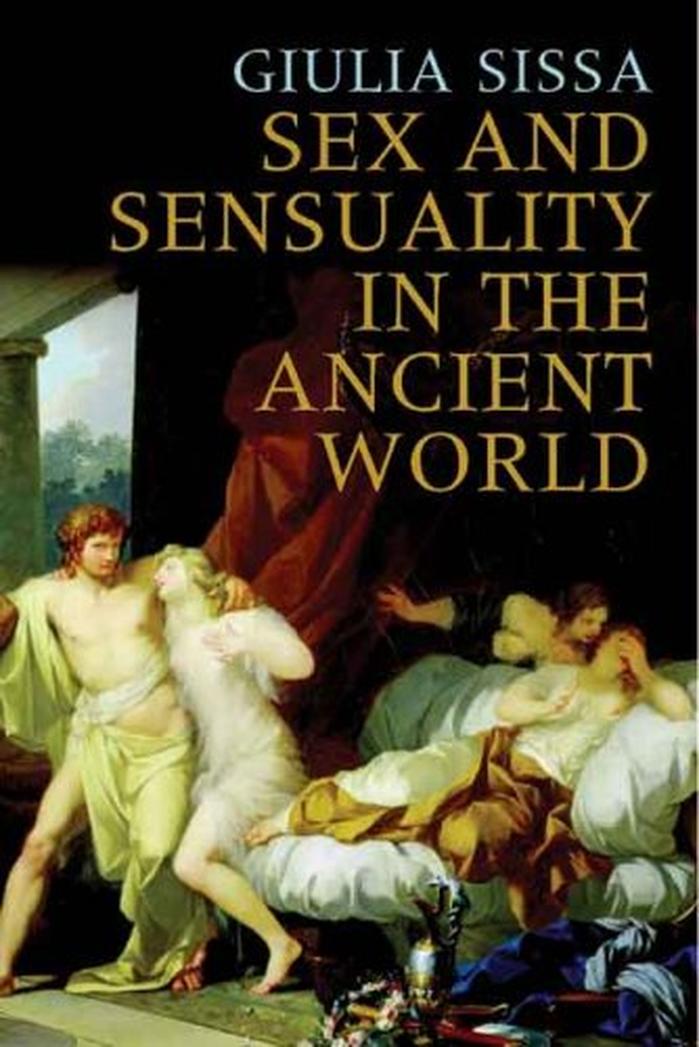
In ancient Rome, literary sources provide surprisingly detailed accounts. Juvenal, a satirist from the late 1st and early 2nd century CE, notes that Roman women sometimes used Greek phrases in bed, especially the exclamation Zoē kai psychē! (“My life and soul!”). This indicated a certain sophistication and private intimacy. Juvenal’s writings imply these vocal expressions were common enough to be remarked upon humorously.
Other Roman authors describe sounds more directly associated with sexual excitement. The Anthologia Latina depicts couples exchanging “fast-following sighs” and mingled breaths. Petronius, in the Satyrico, notes panting and sweating during lovemaking, emphasizing physical and vocal exertion. Lucretius discusses genuine female moaning tied to sincere passion rather than mere performance. Juvenal criticizes those who do not breathe heavily during sex, suggesting that audible breathing and perhaps moaning was expected as a sign of active participation.

Tibullus poetically describes gasping and kissing, portraying a sensory experience that includes vocalization as part of desire and intimacy. Such texts show sexual sounds were observed, described, and culturally framed by Roman authors.
Moving into the early modern period, explicit descriptions of sex sounds become more forthright in French erotic texts from the 17th and 18th centuries. L’Ecole des filles ou la philosophie des dames (1655) contains a dialogue where Suzanne and Fanchon discuss loud pleasure noises. Men are described shouting phrases like “Eh! la, la, la! give it, my friend, my love, my heart,” while women vocally encourage their partners, bawling commands and moans. These texts portray vocalization as part of the erotic experience, mixing roughness and tenderness.
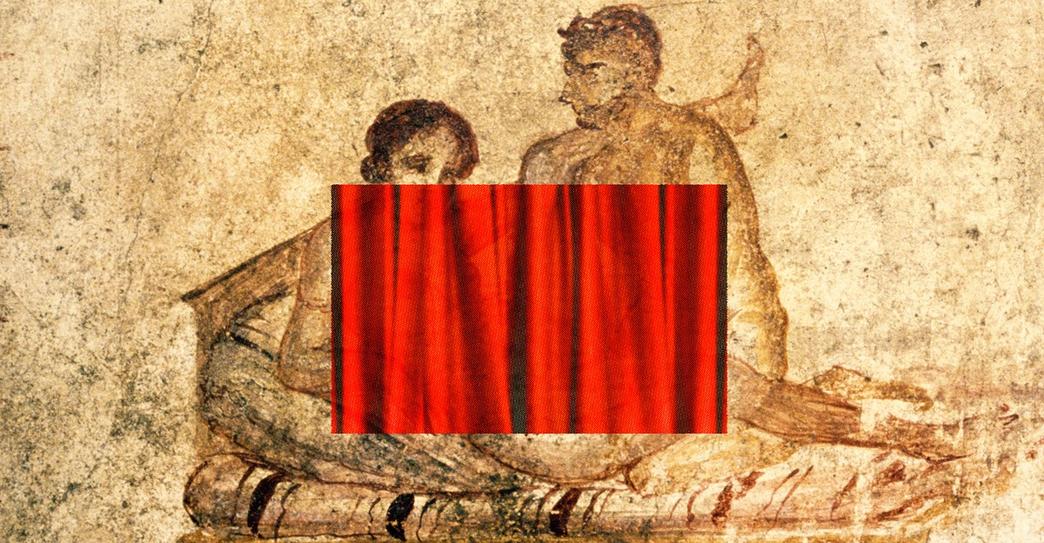
Such literature also documents a variety of vocal and physical cues during sex: sighs, moans, hand-claps, wriggles, and fainting. This wide-ranging repertoire illustrates an interest in the performative and communicative aspects of pleasure, which writers dramatized for readers.
Later libertine poetry and narratives from the 18th century further elaborate sexual moaning and dirty talk. For example, the libertine poem Jouissance (1791) features broken sounds and sighs evoked by pleasure, while texts like Le Lutteur and Portier des Chartreux describe multi-participant scenes with enthusiastic vocalizations including exclamations, cries, and groans. Lesbian and heterosexual encounters alike show moaning as a key indicator of erotic intensity and participant engagement.
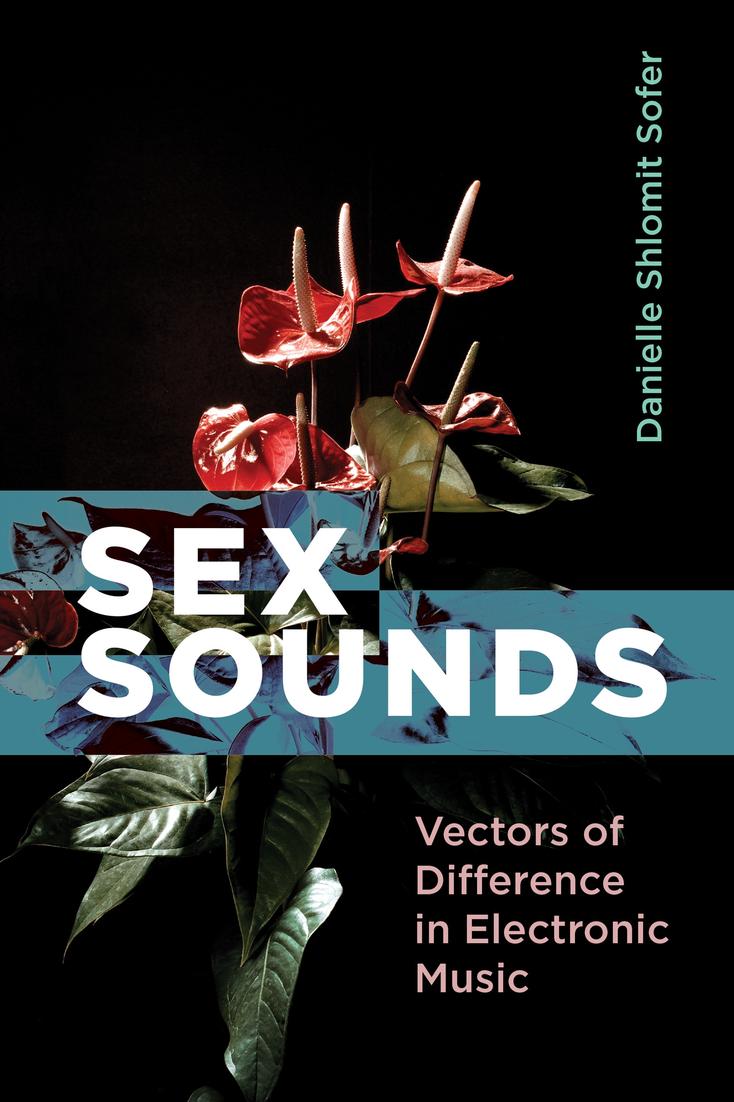
Despite these rich sources, some gaps remain. Italian Renaissance erotic literature, including works by Aretino and Venerio, may contain descriptions of vocalizations, but research into detailed documentation of moans or dirty talk in that context is limited.
| Period | Source | Type of Vocalizations | Remarks |
|---|---|---|---|
| Ancient Rome | Juvenal, Petronius, Lucretius, Tibullus | Greek pillow talk, moans, sighs, panting, gasps | Sex sounds expressed intimacy and passion |
| 17th Century France | L’Ecole des filles | Loud shouting, moans, bawling commands, hand-claps | Detailed erotic dialogue describes vocal pleasure |
| 18th Century France | Le Lutteur, Portier des Chartreux, Jouissance | Moans, sighs, cries, exclamations in orgies and couples | Vocalizations emphasized emotional and physical intensity |
In summary, evidence for sex sounds and dirty talk exists for ancient Rome and early modern France. These are found mainly in poetry, satires, and erotic treatises. Sex sounds range from soft sighs to loud shouts, with language playing a role in communicating passion privately and publicly. Such vocalizations appear integral to expressing sexual pleasure and connection across centuries.

- Ancient Romans used phrases, moans, and panting to express sexual pleasure.
- Roman women sometimes spoke Greek in bed, indicating private erotic dialogue.
- Early modern French texts describe explicit moaning, shouting, and dirty talk.
- Sexual vocalizations were often linked with emotional intensity and physical ecstasy.
- More research is needed on Italian Renaissance erotic vocalizations.
(NSFW) Do we know anything about the sex sounds/moans/dirty talk of earlier/ancient time periods?
Yes, we do have evidence that our ancestors not only made sex sounds, moans, and engaged in dirty talk—but some of it was even recorded in ancient texts. Whether it was Roman ladies whispering sweet nothings in Greek or the lusty cries in explicit 17th-century French erotic literature, sex sounds and vocalizations have a long, storied history. Let’s dive into this juicy slice of human experience and uncover what the sources reveal about how love noises were expressed back in the day.
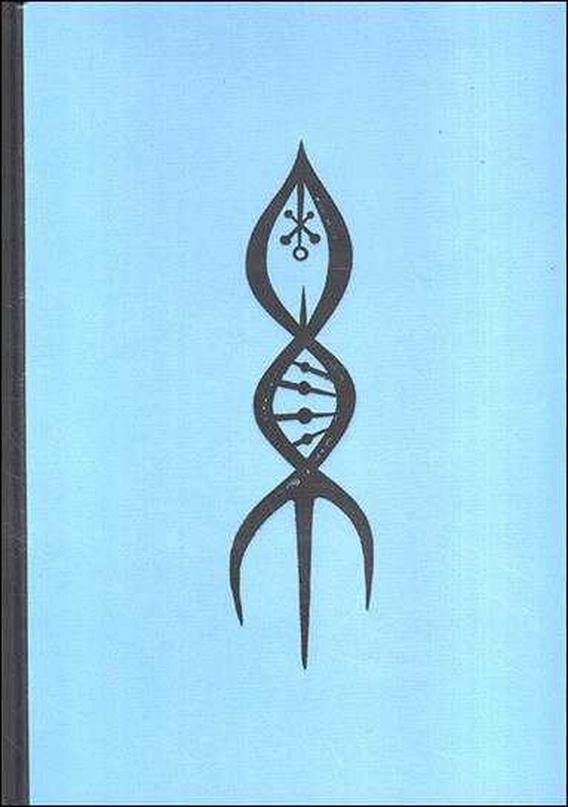
Ready for a little time travel? Buckle up—this is not your grandma’s history lesson.
1. Ancient Rome: When in Bed, Speak Greek (Apparently)

Ever wondered if ancient Roman women moaned in Latin? Surprisingly, nope. The satirical poet Juvenal, writing around the late 1st to early 2nd century CE, tells us that fashionable Roman women often did their bedroom pillow talk in Greek. Yes, the language of the philosophers was also the language of lust.
“They make pillow talk in Greek! Now, you could stand for that in a girl, but you who are pushing eighty-six and still at it in Greek? That’s no decent talk from an old lady. When you let out a frisky “Zoē kai psychē!” you’re using in public what should stay in the bedroom.”
[Juvenal, Satires 6.191-196]
This phrase, Zoē kai psychē!, translates to “My life and soul!” and was apparently a favorite exclamation in amorous moments. Juvenal’s comic discomfort highlights that these were not quiet, mumbling moments but lively outbursts that could cause some blushes or shock in public contexts.
Fontaine’s 2008 work, The Lesbia Code: Backmasking, Pillow Talk, and Cacemphaton in Catullus 5 and 16, further explores this use of Greek as a secret or intimate sexual language among Romans. It appears speaking Greek in bed was not just fashionable but carried erotic weight as well.
2. Moans, Sighs, and Breathless Pleasures of the Ancient World
Roman poets and authors didn’t just mention dirty talk. They vividly described the sounds of passion—the moans (Latin: susperia) and panting breaths (anhelitus). Anthologia Latina’s poem about Mars and Venus paints a lush picture:
“while Mars, while alluring Cythere draw fast-following sighs from the depth of their being, and while they woo the breath of intermingled kisses…”
[Anthologia Latina, De concubitu Martis et Veneris]
Petronius, in his somewhat naughty Satyrico, captures the panting exhaustion of a vigorous love session:
“The pastime had not begun to cloy, as yet, and, somehow or other, what with panting and sweating and wriggling, he got what he wanted and, worn out with pleasure, I dropped off to sleep again…”
[Petronius, Satyrico, 87]
Lucretius, philosopher and poet, observes female moaning as genuine, not just an act:
“A woman doesn’t always gasp with counterfeit passion when she joins her body in embrace with a man and holds his lips with a drawn, moist kiss. Often she acts from her spirit and as she seeks shared happiness, she incites him to race through the course of his love.”
[Lucretius, De Rerum Natura 4.1192]
Even Juvenal singles out the expectation of physical exertion and vocalizations during nocturnal activities, quipping about lovers who breathe hard or should be laid off in favor of a boyfriend who’s more vocal.
3. Moving On to Early Modern France: Dirty Talk Gets Loud, Very Loud
Fast forward to the 17th and 18th centuries, the age of libertine literature, and we find sex sounds fully entering the spotlight. L’Ecole des filles ou la philosophie des dames (1655) features dialogues where characters openly discuss the noises made during sex—sometimes bordering on a comedic commentary about neighbors mistaking loud pleasure for agony.
SUZANNE: “How I hate these hollers who make so much noise and have no consideration! For there are some who cannot be silenced and who, when they ejaculate, at the same time cannot help shouting… it is the force of pleasure that compels them… just as some cry out in pain when flayed, some cry out in pleasure when lovingly tickled.”
FANCHON: “Do they take pleasure in shouting?”
SUZANNE: “They ride like St. Georges, and holding their cocks with a frightened face, when they feel the cum flowing, they cry out loudly: ‘Eh! la, la, la! give it, my friend, my love, my heart, your tongue! and press hard!'”
“Girls too…while wagging their rumps, continually bawl in the ear of him who is on top: ‘Eh! hau! hau! my son, my sweet, push it and put it all in!'”
This dialogue illustrates a rampant celebration of vocal pleasure—both the sounds and the words. Such explicit noisy enjoyment might remind modern readers of certain vibrant conversations about intimate soundtracks today.
4. Sensory Symphony in Libertine Poetry and Narratives
Other libertine texts of the 18th century crank the volume up further—as in the poem Jouissance from Le catéchisme libertin (1791):
“Already a thousand sighs are exhaled from her heart. Already her eyes are clouded with darkness. Her broken sounds stop in passing. This sweet rapture which pleasure gives birth to seems to animate her only with burning desires…”
Or in riotous orgies described in Le Lutteur, ou le petit-fils d’Hercule, where moans, sighs, cries, and other erotic noises merge into a “most delightful symphony.”
Even lesbian love scenes receive vocal descriptions, as recounted in Portier des Chartreux (1741), showing that sexual vocalizations transcended orientation:
“Her eyes were dying, and her face was covered in the brightest red, she was out of breath, her arms were hanging, her breasts were rising and falling… Ah! Suzon,‘ she said to me, in a broken voice, ’finish, please, finish!”
Sex sounds were multifaceted, from whispers to loud cries, sighs to direct commands, binding pleasure and communication into one tangled bundle of interpretive expression.
5. What About Other Times and Places? The Italian Renaissance Mystery
Unfortunately, when it comes to the Italian Renaissance—think Aretino and Venerio, notorious for their explicit works—sex sounds and dirty talk remain a bit of a black box. Scholars have found some hints of moaning, but more dedicated research is still needed to uncover explicit details or vivid descriptions like those in Roman or French sources.
This gap leaves historians curious and readers wishing for more salacious snatches of dialogue recorded in those golden eras of erotic literature.
6. Why We Should Care About Ancient Sex Sounds and Dirty Talk
You might wonder—why does it matter that Romans or French libertines whispered or shouted during sex? Well, these details invert the usual silence surrounding intimacy in history. They remind us that:
- Sexual expression, including vocal sounds, is deeply human and timeless.
- Ancient peoples engaged in and valued sensual communication similarly to how we do now.
- Languages and sounds used during sex reveal cultural attitudes—like Romans using Greek as a secret language of desire.
- Studying erotic vocalizations widens our understanding beyond dry historical facts—into the lived emotional and physical experience.
Plus, there’s a cheeky satisfaction in knowing your distant ancestors might have moaned or dirty-talked it out in surprisingly relatable ways. It’s a humbling reminder that pleasure knows no era.
7. How to Think About Sex Sounds in Ancient Texts
Keep this in mind when reading historical erotic literature:
- Context matters. Often these are poetic or satirical texts, so the sounds might be exaggerated or stylized.
- Different societies had varied taboos. Dirty talk in Greek vs Latin, public vs private vocalizations mirrored social norms.
- Sexual sounds were sometimes used for humor or critique. Juvenal ridicules an “old lady” yelling in Greek, blending pleasure with social commentary.
- Explicit research continues. Many sources remain unexplored or understudied, especially in Renaissance Europe.
So think of these sex sounds and moans not just as titillating curiosities, but as pieces of cultural puzzles revealing ancient intimacy rhythms.
8. Looking Ahead: More to Discover (Or Moan Over)
The history of sex sounds and dirty talk is far from fully charted. With modern digital archives and interdisciplinary studies combining classics, linguistics, and even sound studies, researchers can uncover more about how our ancestors communicated pleasure vocally.
One can only hope new discoveries will reveal more detailed moans and exhortations from Renaissance Italians or earlier civilizations, adding layers to the sonic tapestry of human sexuality through time.
Summary
The record shows that sex sounds and dirty talk aren’t new inventions of modern times. From Roman ladies whispering Greek exclamations to French libertines shouting explicit commands, vocal expressions of desire have ancient roots. These sounds—moans, sighs, panting, and pillow talk—are traces of how people embodied and vocalized pleasure across centuries. While some gaps remain, especially in the Italian Renaissance context, the wealth of material from Roman antiquity to early modern France offers vivid glimpses into the auditory side of historic intimacy. Next time you hear a sexual moan, remember: you’re hearing an echo from thousands of years of human connection and creativity.
Q1: Do we have records of actual sex sounds or moans from ancient times?
Ancient texts mention vocalizations like moans and sighs. Latin poets describe signs of passion, panting, and deep breaths during sex. Writers like Juvenal and Lucretius reference these intimate sounds as part of passionate encounters.
Q2: Did people in ancient Rome use specific languages for dirty talk?
Yes. Juvenal noted that some Roman women spoke Greek during sex, using phrases like “Zoē kai psychē!” (“My life and soul!”). Greek was seen as a sort of erotic language in certain elite Roman contexts.
Q3: What kinds of dirty talk or vocalizations appear in early modern French erotic texts?
French pornography from the 17th–18th centuries included explicit dialogues with loud cries, commands, and expressions of pleasure. Women and men shouted phrases urging each other on, mixing desires and commands during sex.
Q4: How were female moans and vocalizations described historically?
Historical sources often link female moans to genuine pleasure. Poets like Lucretius acknowledged that women’s sounds arose naturally from desire, not always fake. Libertine texts later celebrated sighs, groans, and gasps as part of erotic performance.
Q5: Were sex sounds considered normal or embarrassing in earlier societies?
Ancient Romans expected active participation, including breathing hard or making sounds, especially in youth. However, some texts mock older people making loud noises. In early modern France, loud vocalizations could be seen as excessive or vulgar.
